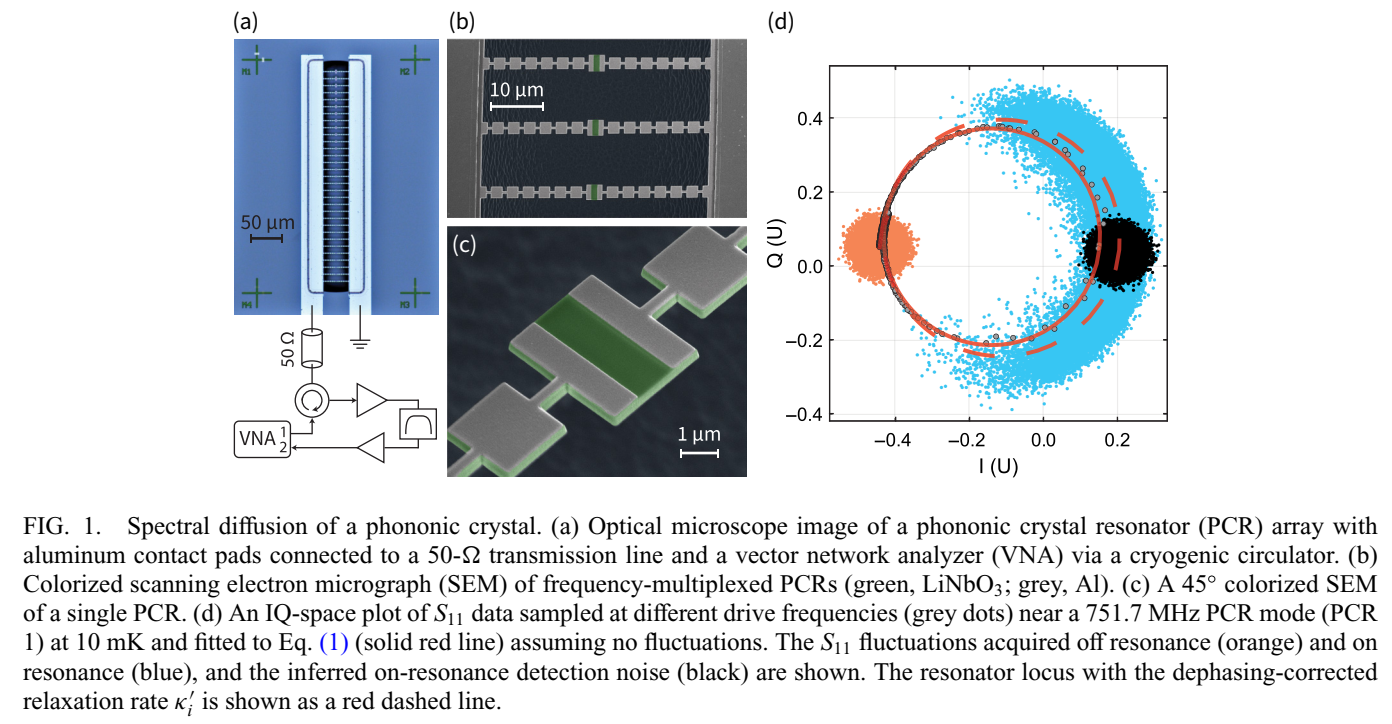Spectral diffusion of nanomechanical resonators due to single quantum defects
2025-10-23 19:24
1740 浏览
Nanomechanical resonators promise diverse applications from mass spectrometry to quantum information processing, requiring long phonon lifetimes

and frequency stability. Although two-level-system (TLS) defects govern dissipation at millikelvin temperatures, the nature of frequency fluctuations remains
poorly understood. In nanoscale devices, where acoustic fields are confined to subwavelength volumes, strong coupling to individual TLSs should dominate
over defect ensemble effects. In this work, we monitor fast spectral diffusion of phononic crystal nanomechanical resonators while varying the temperature
(10 mK–1 K), drive power (102–105 phonons), and phononic band structure. We consistently observe random telegraph signals (RTSs), which we attribute
to state transitions of individual TLSs. The spectral diffusion is well explained by mechanical coupling to individual far-off-resonant TLSs, which are either
thermally excited or strongly coupled to thermal fluctuators. Understanding this fundamental decoherence process, particularly its RTS structure, opens a
clear path toward noise suppression for quantum and sensing applications.
Link to the article is here.

